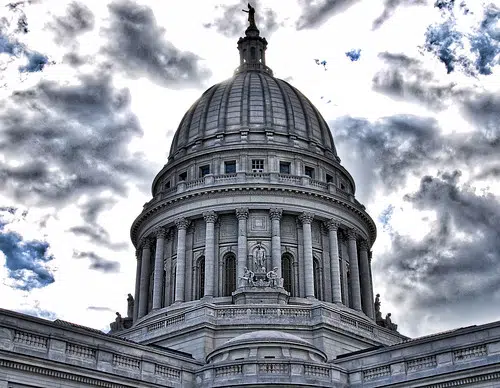MADISON, WI (WTAQ-WLUK) – Members of the state assembly just passed a controversial shared revenue bill. Lawmakers on both sides of the aisle agree that it’s an area that needs to be addressed. But Democrats have expressed concern over several conditions within the Republican- introduced bill.
Additional aid to counties and municipalities is something virtually every state representative agrees is necessary. Local leaders say help is long overdue.
“We spend about 36% of our budget on police, fire and EMS,” Kaukauna Mayor Tony Penterman said. “Over the last 20 years, state aid for critical services has steady declined in real dollars.”
Penterman has waited years for an increase in funding from the state government, also known as shared revenue. He said the local cost for services has become a burden.
“If this bill does get passed, the city of Kaukauna will see about a 20.2% increase in shared revenue, which would equate to about $490,000.”
But lawmakers struggle to find middle ground on Assembly Bill 245, which aims to provide that additional help.
“The bill that we are debating today is also just not ready for prime time,” Assembly Minority Leader Greta Neubauer said. “We need to go back to the negotiating table and we need to get it right. We can and we must do better.”
“We are done negotiating,” Assembly Speaker Robin Vos said. “We are not going to take changes, we are not going to change the bill substantially. Hopefully Governor Evers agrees that this historic investment is worth signing.
The bill was introduced by Republicans in early May and would increase funding to local governments by $227 million. That’s compared to Governor Tony Evers’ plan to increase funding by over $500 million. But the bigger problem Democrats have with the bill are the conditions that are attached to it.
“It comes with unnecessary and damaging strings attached for many communities,” Neubauer said. “There is no reason why this bill to include harmful provisions regarding diversity, equity and inclusion.”
During Wednesday’s assembly session, Republicans introduced an amended version of the bill.
“We feel like six months of time was enough negotiations,” Vos said. “Now it’s time to act.”
Marquette University political science professor Phil Rocco said it’s the extra conditions that are preventing an agreement from being made. He said the proposal risks cutting off aid if communities don’t meet certain criteria.
“Apparently the amendment is supposed to represent a bargain with Evers,” Rocco said. “I’m not sure if that’s actually true or how much of a bargain they got to yet.”
On Wednesday morning Evers released a statement saying he wanted to ensure more flexibility to local partners than what was provided under the bill.
The final vote was 56-36. The bill will now head to a vote at the state senate.





